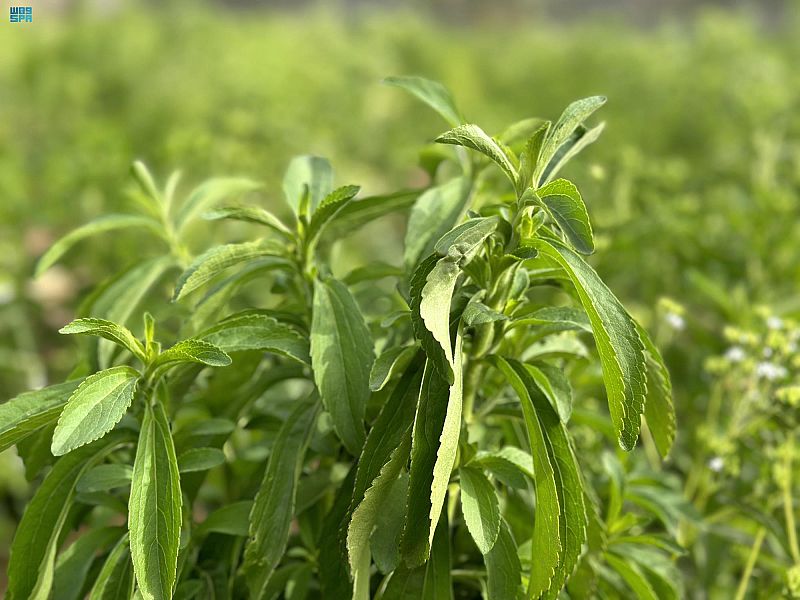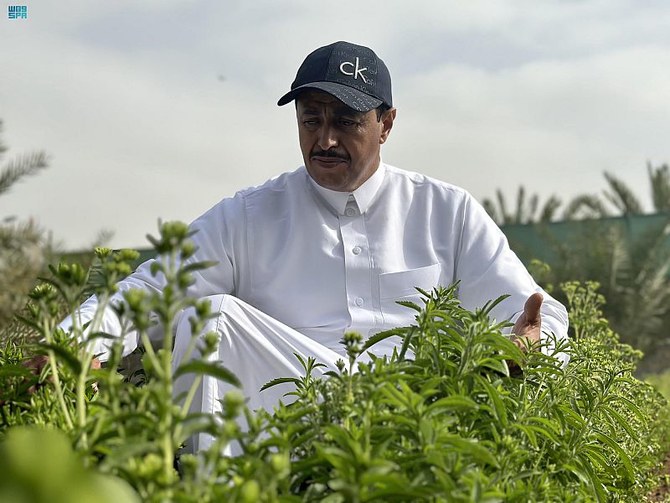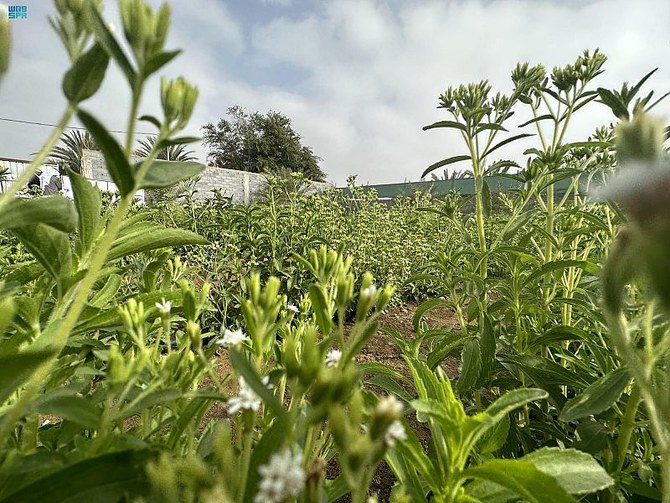RIYADH: The Saudi Ministry of Culture declared 2024 “The Year of The Camel” to celebrate the cultural and social significance of camels, in recognition of their esteemed status in Saudi society and their enduring connection with the Arab people.
Joining them, the UN declared 2024 as the International Year of Camelids with the slogan, “Heroes of the deserts and highlands: nourishing people and culture.”
The Saudi Ministry of Culture recently held a ceremony in Laysen Valley, Riyadh, to celebrate the successful conclusion of the Year of the Camel initiative, where key partners who contributed to achieving the year’s objectives were honored.
It included a presentation of Alheda’a, an oral polyphonic expression accompanied by gestures or musical instruments played by herders to communicate with their camels, recently inscribed on UNESCO’s Representative List of Intangible Cultural Heritage of Humanity.
Camels have long been associated with the history and culture of the Arabs. The bond between Arabs and camels in the vast deserts of this part of the world weaves a tale of companionship and reliance that reaches deep into antiquity.
Bedouins, the quintessential desert dwellers, found consolation and great help from these majestic creatures as they traversed the arid terrain in search of sustenance. With their resilience, camels bore the weight of countless journeys, their significance immortalized in the grand gestures of presenting them as gifts to leading figures in every age.
For many Bedouins who still live in the deserts of Arabia, they continue to provide a source of livelihood, food supply and transport to this day.
Historically, the domestication of camels unleashed the potential of early Arab societies. Arabian armies were able to quickly conquer territory and establish large empires thanks to the speed and resilience of these “ships of the desert.”
The Arabs’ deep-seated attachment to camels is reflected in other ways. In ancient times, Arabs used the words wealth and camels interchangeably in their vernacular.
In an interview with Arab News, Khalid bin Abdullah Al-Turki, spokesperson for the annual King Abdulaziz Camel Festival, said: “The camel holds a revered place in the heart of the Arabs, a timeless companion woven into the very fabric of history. It was the steadfast ally of our ancestors, offering them not only protection and sustenance but also embodying the essence of sacrifice, and ensuring their survival and well-being.
“The camel, after God, was their refuge — providing shelter in a world that offered little else. From its wool, they built their homes, and in its shadow, they found security. Centuries ago, before the comforts we enjoy today, life was a struggle, with few resources and fewer means of survival. Their existence hinged upon the camel and the nomadic life of herding.
“In a land dominated by deserts, it was the divine wisdom of God that allowed the camel to thrive here, for it alone could endure the harsh trials of this unforgiving environment. Thus, the camel became, as mentioned, everything to the Arabs: shelter, food, drink, and the means of travel,” Al-Turki said.
Throughout the year cultural events and activities were organized, domestically and internationally, celebrating camels and the rich cultural heritage they represent.
The Saudi Games 2024 also announced a collaboration with the initiative, adorning their torch, medals and victory bouquet with designs to represent the spirit of the program.
A special camel parade was held in France in April 2024 with Saudi Arabia participating.
The event in Paris was organized by the French Federation for the Development of Camelids in France and Europe, under the umbrella of the International Camel Organization, and was sponsored by the Saudi Ministry of Culture and the Kingdom’s Camel Club.
Elaborating on the significance of camels for people in the Arabian Peninsula, Al-Turki said: “In a time when cars were but a distant dream, it was the camel that carried them across vast deserts, took them on pilgrimages, and connected them with loved ones. It was their faithful companion on every journey, both physical and spiritual, embodying the essence of survival and connection in a world without the conveniences we know today.
“The significance of the camel runs deep, its presence etched into the very essence of Arab identity. It is not something the Arab could ever relinquish, for it is woven into the fabric of their history, culture, and way of life,” he added.
Al-Turki went on: “The significance of the camel in our culture is immense, for our way of life is inseparable from it. Even today, people continue to be bound to the camel. They may live in palaces and towers, yet they cannot do without its milk or meat. The camel remains a vital part of their lives, a companion that is deeply embedded in their culture and identity, an irreplaceable partner in their journey through life.”
He noted that a royal decree was issued in 2017 to establish the Camel Club, under the supervision of Crown Prince Mohammed bin Salman, the club’s supervisor general.
The club is supported by a distinguished membership of intellectuals, experts in the field, and government officials, and places particular emphasis on the camel races held during the King Abdulaziz Camel Festival.
Al-Turki noted that before the establishment of the Camel Club, the number of camels in Saudi Arabia was fewer than 500,000 heads, according to UN statistics, underscoring the critical role the club played in preserving and enhancing this valuable tradition.
Today there are nearly two million camels in the country, according to official statistics.
“This reflects the Camel Club’s significant role in enhancing camel populations in the country,” Al-Turki said.
Initially, some individuals, especially the elderly, entered the field as a hobby and for its cultural value. But with the growth of the Camel Club, this hobby evolved into large commercial ventures, supported by the Public Investment Fund.
One of the most notable examples is camel milk, which has become a highly sought-after product in local and international markets, with supply often struggling to meet growing demand.
In addition to the camel milk industry, large factories have also emerged in the fields of meat and wool production, reflecting the continuous growth of this sector, thanks to the support of the Camel Club, said Al-Turki.
“Camels are no longer just a hobby or passion, they have evolved into an economic and investment venture that contributes to improving the standard of living, prompting camel owners to progress,” Al-Turki said.
Since its inception, the Camel Club assumed responsibility for overseeing the King Abdulaziz Camel Festival, which was organized in collaboration with the administration of King Abdulaziz.
The first edition of the festival was entirely managed by the administration. By the third edition, regulations and arrangements specific to the festival were established, granting the Camel Club full supervision. This was a significant step in strengthening its role in promoting this national heritage.
The club has worked to foster camel culture in younger generations through various efforts, such as incorporating this heritage into school booklets, organizing school visits for students, and holding regular seminars.
The International Camel Organization was established under the umbrella of the UN following a series of collaborations, visits, research, conferences and meetings held over the years, in addition to the regular reports submitted about the King Abdulaziz Camel Festival.
The International Camel Organization initially had 103 member countries. This number later expanded to 105 countries, including the United States, most European countries, East Asia, Africa, and most Arab and Gulf states.
As the organization developed, camel breeders’ associations were established in various regions around the world. One of the first of these was the European Association, founded in Switzerland, followed by associations in America, Africa, East Asia, and other countries.
The International Camel Organization plays a significant role in promoting and spreading camel culture worldwide. It contributes to raising awareness of the health and economic benefits of these animals.
One of the most prominent initiatives by the organization is the International Camel Organization Race at the King Abdulaziz Camel Festival. This race is restricted to participants from non-Arab countries, with Saudi and Gulf participants excluded from competing.
The rest of the races at the King Abdulaziz Camel Festival are open to all participants, regardless of nationality or gender, making the event a true global occasion that encourages interaction from diverse cultural backgrounds.
The festival also provides special opportunities for women, such as the Princess Nourah bint Abdulrahman Race, exclusively for female participants.
“Given that this year has been designated as the Year of the Camel by the Ministry of Culture, it marks a significant activation of this important sector. The exceptional ninth edition of the King Abdulaziz Camel Festival has witnessed notable developments in prizes, which have been increased to over SR200 million ($53.3 million), and the number of prizes has risen from five to 10,” the festival spokesperson said.
It has become essential for everyone to recognize the importance of camels, not only as part of the cultural heritage but also as a key element in sustainable development, Al-Turki said.
































